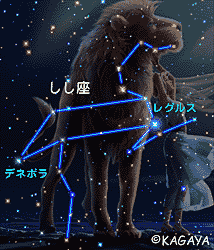After reading about the instruments used in Astronomy, I think you might be interested to know more about another topic which seems to be confused by most people with Astronomy. This term is Astrology (this might be your first time hearing this word, right?).
The word, Astrology, actually comes from the Greek word astron meaning "star" and logy meaning "the science". Astrology is a group of systems, traditions, and beliefs which hold that the relative positions of celestial bodies and related details can provide information about personality, human affairs, and other terrestrial matters. A practitioner of astrology is called an astrologer.
Since Babylonian times, people staring at the night sky were convinced that the regular motions of the heavens were indications of some great cosmic purpose. Priests and philosophers all believed that if they could map the stars and their movements, they could decode these stars and understand the patterns that had an effect on past and future events.
However, there is no evidence to support their belief that stars and planets have any effect on our personalities or our destinies. Astronomers now thnik Astrology is just superstition. However, its original noble motives should not be forgetten. For most of the so-called "Dark Ages", when all pure science was in deep hibernation and the desire to know about the future that kept the science of Astronomy alive.
- Rulership over organs
Until the discoveries of modern medicine, ancient people believed that the body was governed by four main different types of essence which were called "humours". An imbalance in these humours would result in illnesses. Each of the 12 signs of the horoscopes had special links with each of the hmours and with parts of the human body. One example is for a headache due to the moisture in the head (a cold), treatment would be with a drying agent - some plant ruled by the Sun or an "Earth sign", like Virgo -when a New Moon was well placed towards the sign of Aries, which ruled the head.
In this calendar, the names for the days of the week show traces of astrological belief - for example, Sunday is the Sun's day, and Monday is the Moon's day. This simple perpetual calendar, which contains small planetary signs next to each day, shows the day of the week for any given date. The user can find out the day by turning the inner dial to a given month or date and reading off the information.
- Examples of zodiacs in Astrology
 These 19th-century French constellation cards show each individual star marked with a hole through which light shines. Astrologically, each zodiacal sign has its own properties and its own friendships and enemies within the zodiacal circle. Each sign is also ruled by a planet, which similarly has its own properties, friendships, and enemies. So, for example, a person born while the Sun is passing through Leo is supposed to be kindly, like a lion.
These 19th-century French constellation cards show each individual star marked with a hole through which light shines. Astrologically, each zodiacal sign has its own properties and its own friendships and enemies within the zodiacal circle. Each sign is also ruled by a planet, which similarly has its own properties, friendships, and enemies. So, for example, a person born while the Sun is passing through Leo is supposed to be kindly, like a lion. Scorpio, the Scorpion
Most of the constellations are now known by the Latinized versions of their original Greek names. This card shows Scorpius, or Scorpio. This is the sign "through which" the Sun passes between late October and late November. Astrologers believe that people born during this time of year are intuitive, yet secretive, like a scorpion scuttling under a rock.
Cancer, the Crab
Cancer is supposed to be a home-body, like a crab in its shell. These hand-painted cards are collectively known as Urania's Mirror - Urania is the name of the muse of astronomy. By holding the cards up to the light, it is possible to learn the shapes and relative brightness of the stars in each constellation.
References:







0 comments:
Post a Comment